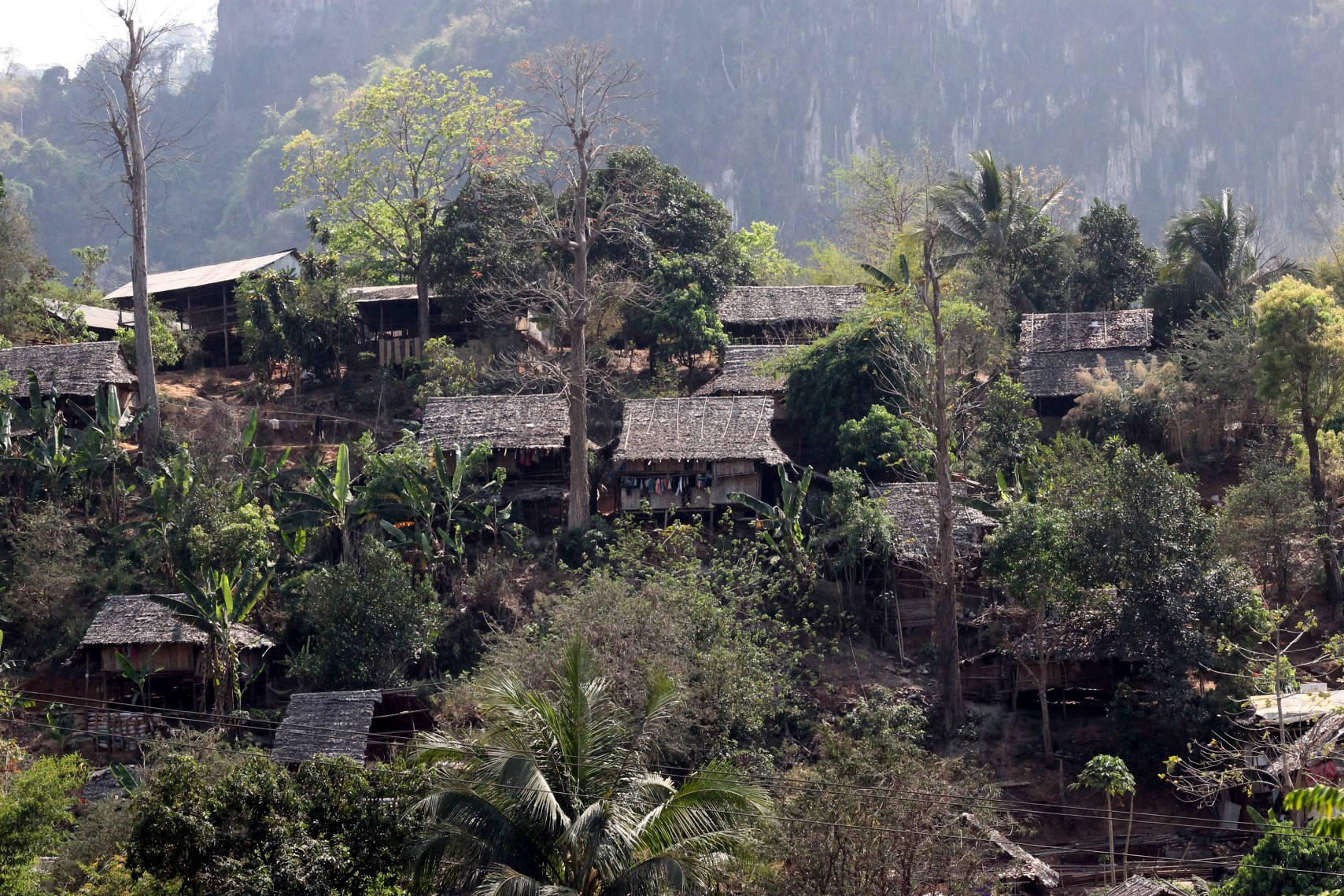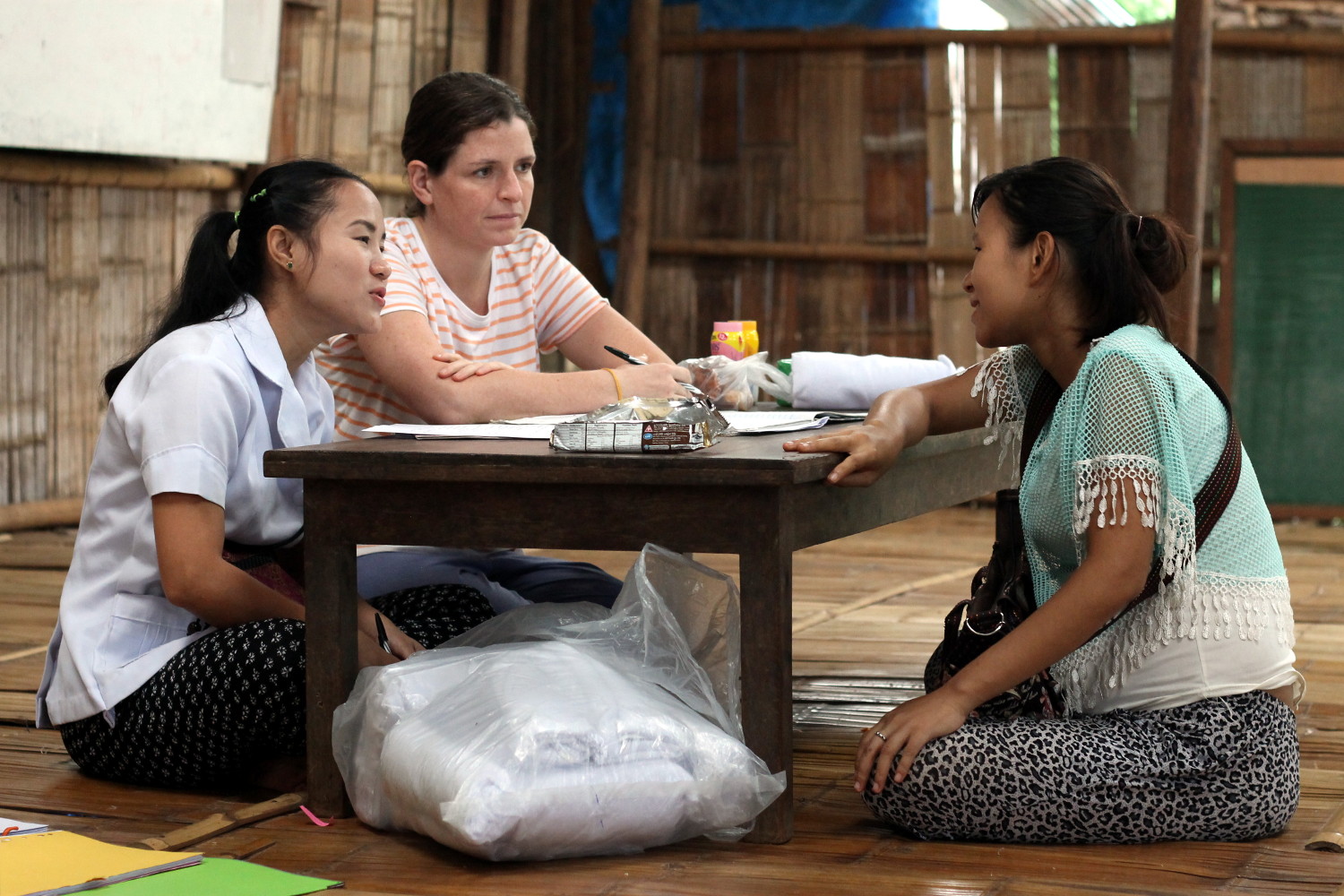Tragic Suicide Case Highlights Mental Health Needs of Refugees

The woman was nine weeks pregnant. She and her husband had recently been kicked out of her in-laws' home in the refugee camp where the whole family lived on the Thai-Myanmar border.
Two days after a routine checkup and ultrasound at a camp clinic, in which she raised no alarms with the clinicians who saw her, the 18-year-old woman and her 22-year-old husband each drank a cup of herbicide and went to their bed in her father's house to die.
The couple left no real explanation for their suicides, but a recent report on their case in the journal BMJ Case Reports highlights the risks for refugees: Cut off from their homelands and from many of the usual sources of social support, most refugees also lack access to mental health care. It's a problem that persists not only along the Thai-Myanmar border, where decades of conflict have created semi-permanent camp settlements, but also in the Middle East and Europe among Syrians displaced by the civil war in their country. [5 Myths About Suicide, Debunked]
"I often think, 'Could we have said something more or been more proactive somehow and helped her?'" said Gracia Fellmeth, a public health researcher at Oxford University in the U.K. and lead author of the case report published in September 2016.
The refugee experience
Fellmeth and her colleagues met the woman while they were doing a study of depression and mental health in refugees at the Maela camp, which is home to about 38,000 people, mostly ethnic minority refugees from Myanmar. Conflict in Myanmar has been ongoing for decades, and the camps have become a permanent home for many refugees who have nowhere else to go, Fellmeth told Live Science. There is very limited access to health care, with two non-governmental organizations providing the bulk of services. Mental health professionals are nearly nonexistent within the camps, she and her colleagues wrote in BMJ Case Reports. There is no psychiatrist, only a small team of counselors with three months' training.

A similar dearth of mental health care persists for Syrian refugees. A 2015 report by the International Medical Corps found that 54 percent of Syrian refugees interviewed in Lebanon, Turkey, Jordan and within Syria itself (where many were internally displaced by fighting) had a severe emotional disorder, typically anxiety or depression. The displaced people cited stressors ranging from the continued fear of violence, limited access to education and health care, inability to work and discrimination from people in the host country.
"You really got a sense of hopelessness, just really feeling at a loss," said Alessandra Von Burg, a communications professor at Wake Forest University in North Carolina, who studies citizenship and who visited refugee and migrant camps in Italy and Greece in 2016. "The one thing that we did also hear a lot is that [hopelessness and loss becomes] translated into cynicism and distrust."
Sign up for the Live Science daily newsletter now
Get the world’s most fascinating discoveries delivered straight to your inbox.
Life in limbo
The causes of mental health disorders in refugees are not necessarily the same as the causes of these conditions in people who are not refugees, according to a 2015 report by UNHCR, the United Nations' refugee commission. Depression and anxiety are natural responses to displacement and disruption, the authors wrote.
"Difficult life circumstances often lead to demoralisation and hopelessness, and may be related to profound and persistent existential concerns of safety, trust, coherence of identity, social role and society," they wrote. [Psychology of Immigration: Why Responses to Migrant Crisis Vary]
For the permanent refugee populations along the Thai-Myanmar border, life is on hold, with little opportunity to move forward. Refugees can't legally work, Fellmeth said, though many act as illegal laborers because the food rations at the camps aren't enough to feed a family.
"People are just bored," Fellmeth said. "There's not much to do in the camps."
Similarly, refugees from Syria and migrants from other war-torn places like Libya are in limbo, Von Burg said. According to the United Nations, more than half of the displaced people from Syria are children, and three-quarters of those are under age 12. Nearly half of the Syrian refugee children evaluated in one study in Turkey met the criteria for having clinical anxiety, according to a 2015 paper in the journal Global Mental Health. Young men traveling alone were particularly hopeless and frustrated at the camps Von Burg visited.
"A lot of the males, particularly those traveling by themselves, really had no support system," she said.
In the Maela camp, Fellmeth's research found, around 30 percent of women have symptoms of depression. Mild or moderate symptoms are the most common, but that fact no longer comforts Fellmeth or her colleagues: The 18-year-old who drank herbicide with her husband exhibited only mild symptoms two days before their suicide.
"That suddenly made us look at all the women who had these very low-grade symptoms and take even the mild end of the spectrum more seriously," Fellmeth said.
Paired suicides are rare, representing less than 1 percent of all suicides, Fellmeth and her colleagues wrote. (According to the World Health Organization, there were around 800,000 suicide deaths globally in 2012, the last year for which complete data are available.) The woman did not seem to be physically coerced into the act, but psychological coercion is possible, the researchers wrote. No one ever psychologically assessed the woman's husband, and it's unclear why the couple killed themselves. The husband did use drugs and alcohol, a risk factor for suicide, and the woman had cited family tensions as a cause of her own feelings of unhappiness.
Some aid agencies in Europe, Turkey and the Middle Eastern countries that are taking in large numbers of Syrian refugees are attempting to provide mental health services. The Israel-based humanitarian agency IsraAID, for example, has sent psychologists to Lesvos (also called Lesbos) Island, where many migrants and refugees arrive in Greece after dangerous sea crossings. International Medical Corps provides services as well. Even the MV Aquarius, a rescue boat operated by SOS Méditerranée and Médecins Sans Frontières (Doctors Without Borders), takes counselors aboard when it ventures into the Mediterranean in search of stranded or swamped dinghies overcrowded with refugees and migrants, Von Burg said. At the Maela camp on the Myanmar border, the community is becoming more aware of mental health issues, Fellmeth said, and there are an increasing number of counselors available to provide talk therapy.
But whether on the border of Myanmar or the shores of Greece and Italy, access to care remains scant, Fellmeth and Von Burg said.
"It's never enough in terms of numbers," Von Burg said, "because the numbers are so big."
Original article on Live Science.

Stephanie Pappas is a contributing writer for Live Science, covering topics ranging from geoscience to archaeology to the human brain and behavior. She was previously a senior writer for Live Science but is now a freelancer based in Denver, Colorado, and regularly contributes to Scientific American and The Monitor, the monthly magazine of the American Psychological Association. Stephanie received a bachelor's degree in psychology from the University of South Carolina and a graduate certificate in science communication from the University of California, Santa Cruz.









